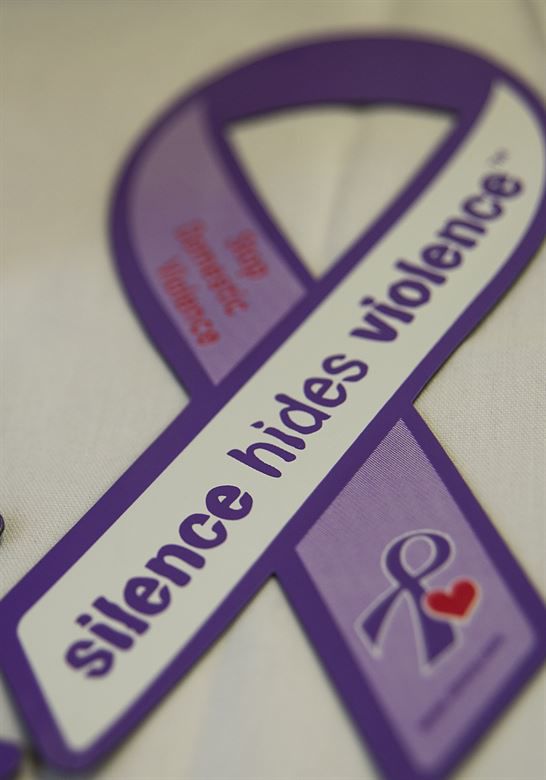Editorial: Be part of the solution during Domestic Violence Awareness Month
Courtesy of Joint Base Charleston
October is National Domestic Violence Awareness Month. If you or someone you know is experiencing abuse, there are many websites and resources to find support or advice on how to approach the issue, including Iowa State’s Green Dot Program and the National Domestic Violence Hotline.
October 17, 2019
Content Warning: This editorial discusses the pervasive impact of domestic violence on our society at a national and state level.
By the time you’re done reading this, about 40 people will have experienced violence at the hands of an intimate partner.
That’s 20 every minute, 10 million annually.
It’s a staggering statistic from the National Coalition Against Domestic Violence, but it’s something we have to face. The organization’s data for Iowa shows nearly a third of Iowa women and about a fifth of Iowa men experience domestic violence in their lifetimes.
Those people are your classmates, your professors, your friends — nobody is immune.
This month is National Domestic Violence Awareness Month, and while we should all be committed to standing up to this issue year-round, it’s a good time to take a minute to recommit.
So, what can we do?
First, check on your friends. Some things are cliche for a reason.
If you’re worried about a friend’s new partner, Break the Silence Against Domestic Violence has a tip sheet on how to have the conversation and what signs to look for. If your friend is having doubts about their safety, listen earnestly. Believe them, and don’t pass judgement on reasons they’ve stayed.
The Iowa Victim Service Call Center and the National Domestic Violence Hotline can offer resources and guide you to support in your area.
Here at Iowa State, the Assault Care Center Extending Shelter and Support is a fantastic resource offering counseling and support groups for survivors.
If you see something concerning when you’re out and about, do something about it. Iowa State’s Green Dot program is a great way to learn about how to be a safe, yet active bystander. If you’re a leader on campus, schedule a training for your organization. It could make a huge difference in someone’s life.
Finally, learn about how laws in Iowa impact domestic violence survivors.
For example, Iowa still has a “boyfriend loophole” that mirrors the one at the federal level. If a convicted perpetrator of domestic violence is not or was never married to the survivor, does not live with or have a child with them and is not their parent or guardian, they can still own or purchase a firearm. Presence of a firearm in a domestic violence situation increases homicide risk by 500 percent.
So, has it been two minutes? That’s about 40 people.
Let’s do something about it.

















